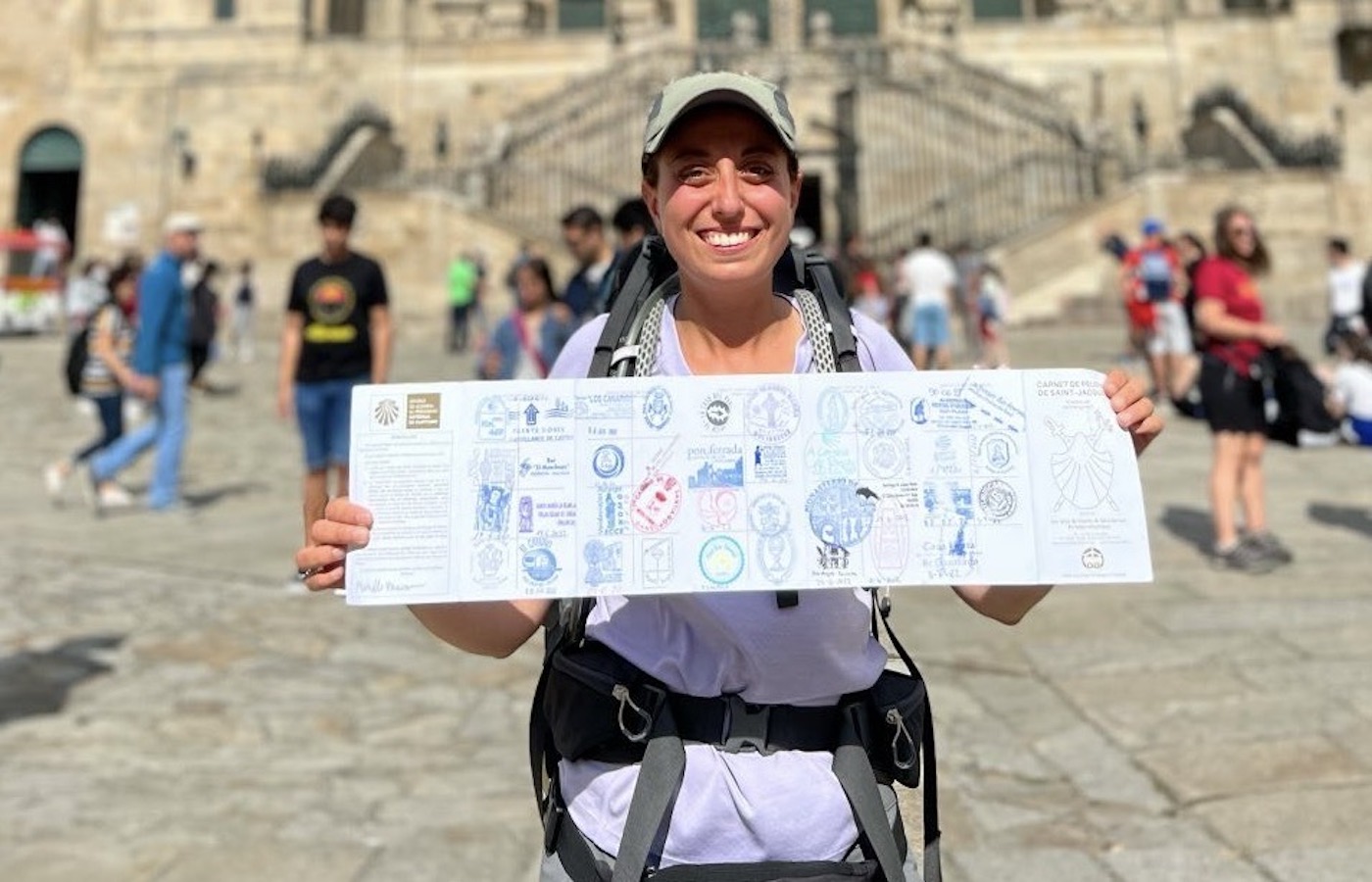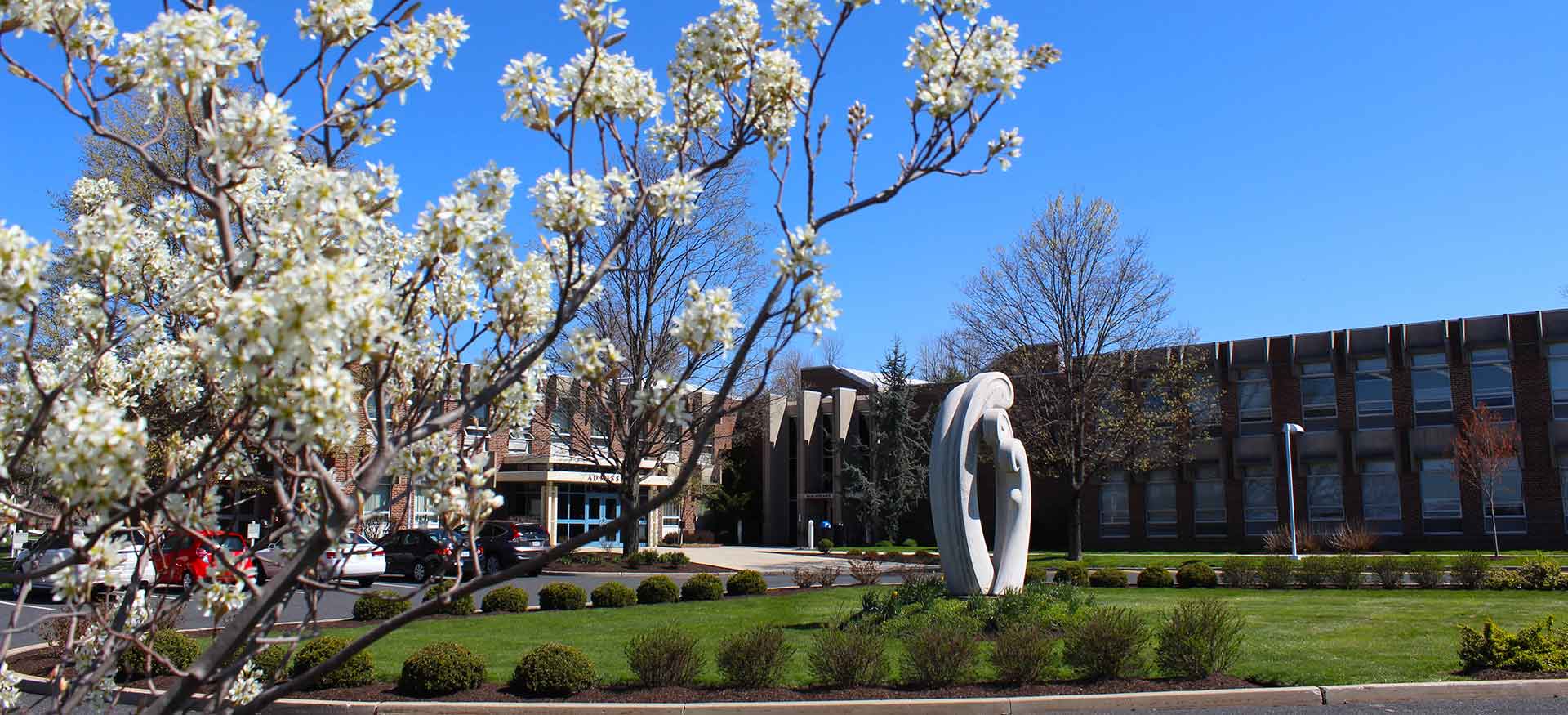From Campus to Camino: Michelle Khawam’s Pilgrimage Inspires

Five hundred miles in 34 days. That’s what Michelle Khawam ’12, a theology graduate, committed to when she agreed to embark on the Camino de Santiago.
The Camino is a network of trails across Spain and France that leads pilgrims to the shrine of the apostle St. James the Great in the Cathedral of Santiago de Compostela in Galicia, Spain.
Khawam first learned about the Camino when her professor, Father Thomas Dailey, OSFS ’81, invited her to watch “The Way,” a movie about the pilgrimage.
“I told myself I would never do it,” she says. “I couldn’t walk 500 miles. I doubted myself.”
After graduating and starting her career as a campus minister, Khawam remained exposed to the idea of the pilgrimage. Through her work, she watched “The Way” at retreats, and was repeatedly asked by a friend whether she would go. These signs, along with hearing the song “500 Miles” consistently on the radio, made her believe the Camino was her destiny.
“I thought, ‘Okay, God is calling me; the Camino is calling me.’ I also felt like I needed some kind of change in my life. I saw the Camino as that first step toward where God wanted to take me next.”
Preparation for the Camino commenced as soon as she committed to the journey. She started taking three-mile hikes every weekend, then worked her way up to walking 17 miles in one day. She also experimented with different types of shoes and backpacks, hoping to find ones that would be comfortable throughout the journey.
On May 30, 2022, Khawam officially began her Camino. Each day of the pilgrimage was similar: breakfast, a four-or-five mile walk, lunch, and more hiking. Along the way, Khawam would get to know other pilgrims from around the world and occasionally explore a town. The “easy” days involved 12-mile hikes, while the more difficult ones required walking 15 to 17 miles.
Khawam made a point to let go of expectations and to be present in each moment. But two weeks in, she says, she broke down.
“I cried. I said, ‘I’m exhausted, my feet hurt.’ It can be an emotional experience, and I had a lot of ups and downs.”
Some other challenges included enduring a heatwave, overcoming severe plantar fasciitis, and contracting COVID-19. “At the end of each evening, you’d prop your feet up and say, ‘Thank God I made it.’”
When Khawam and her friends finally finished their trek several weeks later, she described the experience as surreal.
“I realized it was never about the ending, it was about the journey. The end of the Camino is just the start of your Camino.”
Khawam emphasizes that the Camino isn’t exclusive to Catholics or the religious. She crossed paths with many others who just wanted to experience the views of Spain and the culture, or learn something about themselves. She recommends the journey to anyone who is up for the challenge and hopes to try a different route in a few years.
“There isn’t a day that goes by that I don’t think about the pilgrimage. I miss the simplicity of our days; all we had to do was get up and walk. The Camino has helped me to grow in my faith and learn to be more patient with myself on my faith journey and my journey in life as well. It has given me a lot of grace.”




